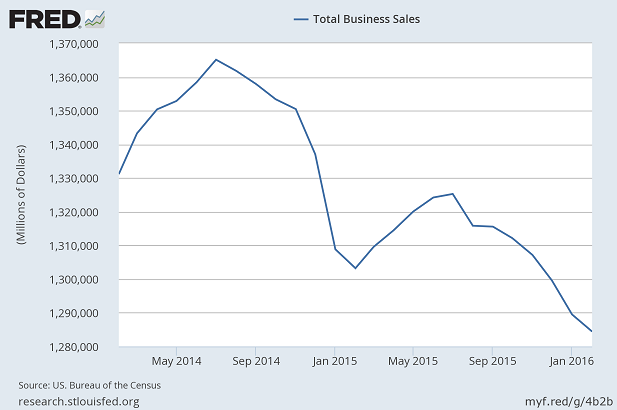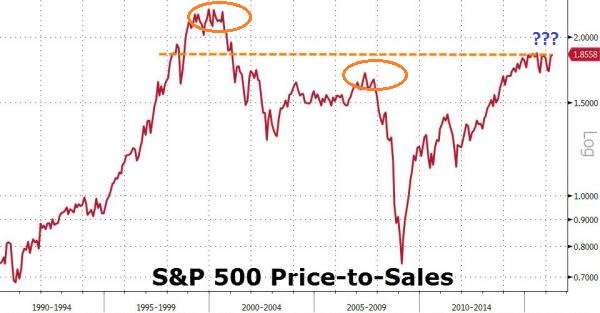The world’s central banks devise conventional and unconventional ways to depress interest rates. The impact? Consumers purchase goods and services on credit with favorable financing terms. Corporations issue low-yielding debt in order to buy back shares of their own stock. And governments issue low-yielding treasuries to continue spending far more than they generate in tax revenue.
For some investors, then, the only thing that matters in the determination of whether to acquire assets like stock and real estate is ultra-low interest rate policy. On the other hand, what if the macro-economic environment is deteriorating? Should investors ignore wavering home sale trends, declining consumer sentiment, faltering retail developments, floundering total business sales, weakening economic growth on the domestic front as well as economic stagnation on the world stage?
When things are getting worse, investors ought to take notice. Why? Because the central banks may not be capable of arresting the development of bear market declines indefinitely.
In spite of ever-decreasing mortgage rates over the last year, do pending home sales appear to be accelerating or decelerating? They seem to be getting worse to me. Perhaps real estate asset prices have climbed to a level that even a 3.5% 30-year mortgage cannot fix.
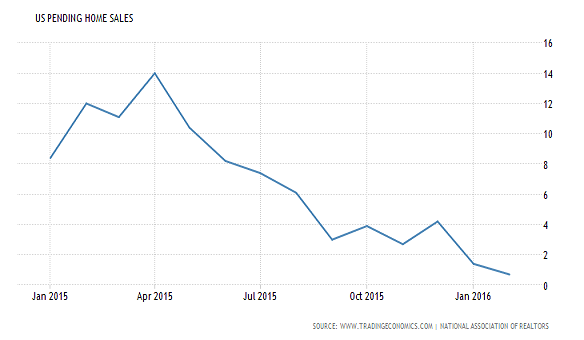
Surely, consumers are giddy about low gas prices and bountiful job opportunities, right? And yet, consumer sentiment has been trending lower and lower over the past 12 months.
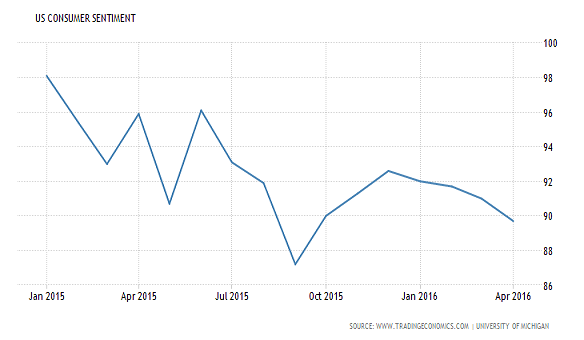
Perhaps consumers are spending more of their money from energy savings and fat paychecks at a variety of retailers. Nope, that’s not it.
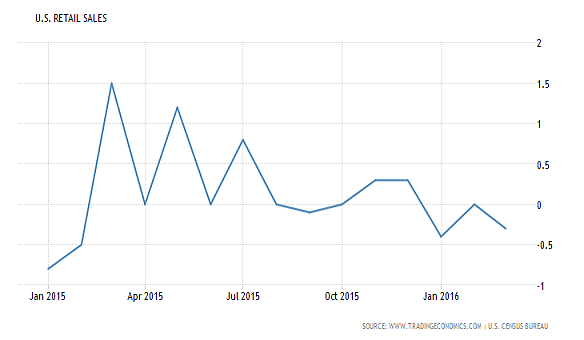
Maybe retailers are the only stragglers? Unfortunately, that’s not the case either. Corporations have been languishing to sell their goods and services since the business cycle peaked in July of 2014.
Theoretically speaking, investors would want to be careful about owning companies that are selling less. One should feel more comfortable about paying up when sales per stock share are climbing. However, when revenue per stock share is wilting, one should recognize that he/she is paying an exorbitant price relative to those declining sales. The S&P 500 has not been this overvalued (1.86) since the dot-com tech wreck collapsed in the early 2000s.
Well, it might be that corporate profits are all that matter. Earnings have been looking better, haven’t they? Hardly. The price investors have been willing to pay relative to GAAP S&P 500 earnings has been hitting extraordinary overvaluation levels (24x). What’s more, earnings per share have been falling each quarter since Q3 2014.
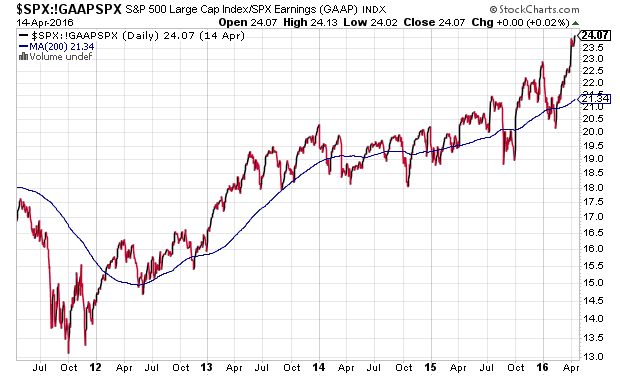
Is it possible that some of these trends will reverse themselves if the underlying economics around the globe improves? After all, China may be stabilizing, Japan may be escaping its recession and the euro-zone may be gradually recovering.
I am not sure there’s a whole lot of evidence for those suppositions. China’s economy just posted its slowest quarterly growth in seven years (6.7%). Japan and the euro-zone now rely on the lunacy of negative interest rate policy. The International Monetary Fund (IMF) just cut its global growth forecast. And world trade has not looked this anemic since the Great Recession.
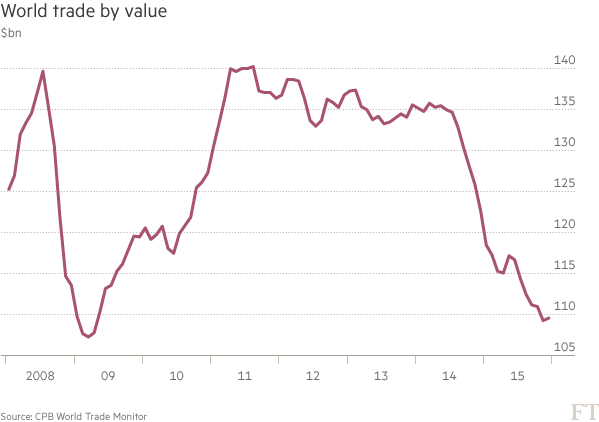
Bottom line? There will be a point where a lack of sales and a lack of profits will collide with the endless hope for central bank low rate manipulation. And the result is not likely to pretty.
I am maintaining the lower-risk asset allocation that I have had in place for roughly a year. Specifically, we remain underweight equities for our moderate growth-and-income clients. Our current allocation of 45%-50% stock – only large-cap U.S. stock – is spread across ETFs holdings such as iShares MSCI USA Minimum Volatility (NYSE:USMV), iShares MSCI USA Quality Factor (NYSE:QUAL) and Vanguard High Dividend Yield (NYSE:VYM).
Our current allocation of 25%-30% to income holdings – only investment grade – is spread across ETF holdings such as iShares 7-10 Year Treasury Bond (NYSE:IEF), Vanguard Long-Term Corporate Bond (NASDAQ:VCLT) and SPDR Nuveen Barclays (LON:BARC) Municipal Bond (NYSE:TFI). The remaining 20%-30% in cash equivalents continues to provide value as a buffer against downside volatility, as well as serve as a storage place until it is time to acquire assets at more attractive prices.
Disclosure: Gary Gordon, MS, CFP is the president of Pacific Park Financial, Inc., a Registered Investment Adviser with the SEC. Gary Gordon, Pacific Park Financial, Inc, and/or its clients may hold positions in the ETFs, mutual funds, and/or any investment asset mentioned above. The commentary does not constitute individualized investment advice. The opinions offered herein are not personalized recommendations to buy, sell or hold securities. At times, issuers of exchange-traded products compensate Pacific Park Financial, Inc. or its subsidiaries for advertising at the ETF Expert web site. ETF Expert content is created independently of any advertising relationships.

